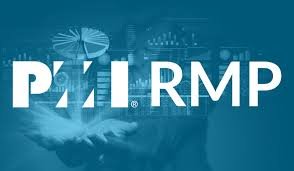Importance of Security for System in Remote Work Environments

Did you know that the average total cost of data breaches in 2024 was $4.88 million? This shows the critical need for robust security measures.
As more companies adopt remote work, cybersecurity becomes more challenging. Employees access sensitive data from different locations and devices. This increases the risk of cyber threats and a need in security for system.
Security for systems is crucial in remote work environments. This is to protect sensitive data and prevent cyber attacks. Read on to learn about the importance of implementing it.
Protecting Sensitive Data
Keeping sensitive data safe is the top priority in remote work. Client records, financial data, and business information must be protected. Weak security can lead to data breaches and serious problems.
Strong encryption and secure logins are crucial. Employees should learn to spot phishing scams and other threats. They should use multi-factor authentication for an extra layer of protection.
Maintaining Compliance
Following industry regulations is crucial for businesses, especially those handling sensitive data. Laws like GDPR and HIPAA need strict security measures. Failure to comply can lead to heavy fines and legal issues.
Companies must conduct regular audits to maintain compliance. These assessments help identify risks and prevent data breaches.
Understanding what is HIPAA penetration testing can also help organizations identify vulnerabilities. It helps organizations find and fix them before hackers exploit them. Strong compliance measures protect both businesses and their clients.
Preventing Cyber Attacks
Remote work comes with unique security risks. Hackers look for weak spots in systems to launch attacks. Insecure Wi-Fi and outdated software make businesses easy targets.
Strong security measures help prevent cyber threats. Employees should use secure networks and updated devices. They should also use firewalls and antivirus software to add extra protection.
Companies should monitor systems for unusual activity. Staying proactive keeps remote work environments secure.
Securing Company Devices
Remote employees often use both personal and company devices. Personal devices may lack proper security. This creates risks for company data and networks.
Businesses should enforce strict device management policies. All devices must have updated security software. Employees should avoid using public Wi-Fi for work.
A mobile device management (MDM) system helps control access. It ensures that only approved devices connect to company networks. Safe device usage keeps company information secure.
Enhancing Employee Awareness
Human error is a major cause of security breaches. Employees must understand security protocols. Training helps them avoid common cyber threats.
Regular security sessions improve awareness. Employees should learn to spot phishing scams and malware attacks. Knowing the signs helps prevent breaches.
A strong security culture protects company data. Staff should report suspicious emails immediately. Continuous learning keeps security knowledge up to date.
Using Advanced Technologies
Cybersecurity technology is evolving fast. Businesses can use advanced tools to improve security.
AI and machine learning help detect threats quickly. These systems analyze past attacks to prevent future risks.
AI-powered security learns and adapts over time. It can identify unusual activity before damage occurs. This reduces the chances of data breaches.
Data Backup and Recovery
Businesses need strong backup and recovery plans. Regular backups help restore operations quickly. This prevents long downtime and major disruptions.
Companies should use encrypted storage to keep data protected from hackers. These backups ensure no data is lost.
Testing recovery plans is also important. Companies must check backups for reliability. Quick recovery reduces financial and operational damage.
Strengthening Network Security
Remote work relies on home networks, which may be less secure. Weak networks create risks for company data. Businesses must improve security to protect sensitive information.
Using a Virtual Private Network (VPN) is essential. VPNs encrypt internet traffic, keeping data safe. They prevent hackers from intercepting confidential information.
Home routers must also be secured. Employees should avoid using public Wi-Fi for work. A secure network keeps business data protected.
Monitoring and Incident Response
Continuous system monitoring helps detect security issues quickly. An incident response plan ensures a quick reaction to security breaches.
The faster a response, the less damage is done. A proactive approach strengthens security. It keeps businesses prepared for any situation.
Companies should update their incident response plans regularly. Effective monitoring and response protect data and maintain system integrity.
Building a Cybersecurity Team
Organizations need a dedicated cybersecurity team. This team manages security efforts and conducts risk assessments. They also ensure compliance with regulations.
Experts help keep systems updated with the latest security technologies. A cybersecurity team is the first line of defense. They respond quickly to potential threats.
Having a team also builds confidence in the company’s security. They ensure that security protocols are always followed. A strong team can handle any cyber challenges that arise.
Fostering a Security-First Culture
A security-first mindset starts with leadership. Leaders must make security a top priority in the company.
When employees see security as a shared duty, they are more committed. A strong security culture keeps everyone vigilant.
Fostering teamwork in security strengthens defenses. It creates a workplace where everyone is aware of threats. A security-first approach leads to fewer breaches and better protection.
Regular Security Audits
Regular security audits help organizations measure their practices. These audits check if security measures meet industry standards. They identify weaknesses and areas for improvement.
Third-party experts can provide an unbiased review. Their insights help strengthen security practices. They ensure that security measures adapt to new threats.
Regular audits help prevent potential breaches. They are an essential part of maintaining strong security.
Supporting Remote Employee Needs
Remote employees face unique challenges that affect security. Providing the right resources helps them follow security measures. Cybersecurity toolkits, training sessions, and tech support are essential.
When employees feel supported, they are more confident in their work. They are more likely to follow security protocols. Clear guidelines help them handle threats effectively.
Employees should have easy access to help when needed. This reduces the risk of mistakes that could lead to breaches. A well-supported team strengthens the organization’s security.
The Role of Security for System Integrity in Remote Environments
Security for system integrity in remote work is crucial. It protects sensitive data and ensures compliance. Preventing cyber attacks and building a culture of awareness are also key.
As remote work grows, so should security efforts. Act now to strengthen your organization’s security. Protect your remote workforce with solid security practices.
Don’t stop here, there’s so much more to learn about on our website. Browse our other blog posts for more information.








